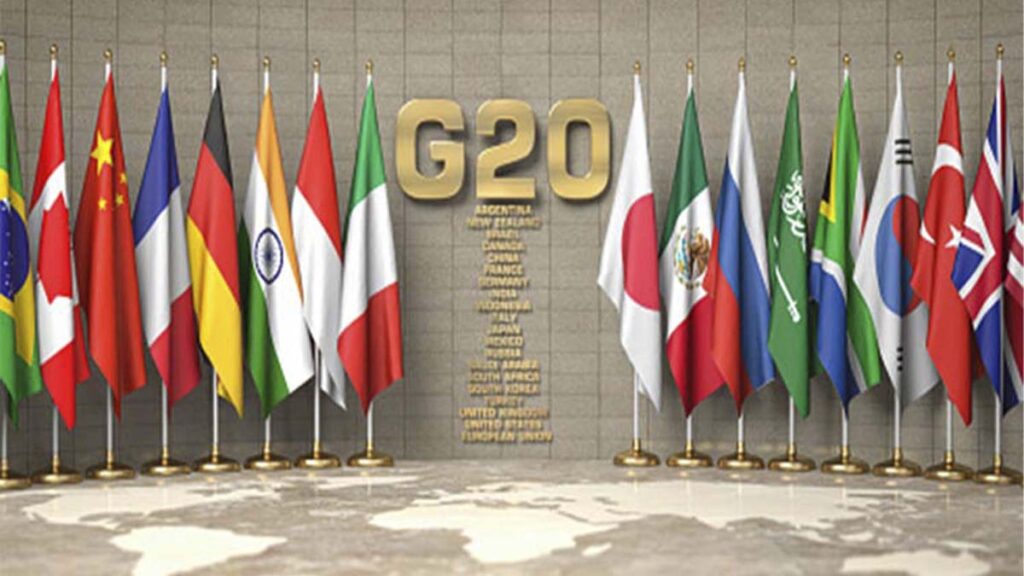The recent G20 agreement to regulate the cryptocurrency industry has raised a red flag for the community.
The crypto world has since its inception been a beacon of hope for those who long for a more democratic and decentralized financial system. But, as cryptocurrencies have expanded and gained legitimacy, they have attracted the attention of regulators and governments around the world.
While regulation may be necessary to protect investors and prevent illicit activities, it also poses a fundamental dilemma:
CAN CRYPTO REMAIN TRULY DECENTRALIZED UNDER THE SHADOW OF REGULATION?
The G20 has adopted a regulatory plan proposed in a joint IMF-FSB report on cryptocurrencies. This agreement seeks a coordinated and rapid implementation of policies, with a focus on comprehensive supervision rather than outright prohibition.
The first review of these measures is scheduled for the end of 2025, the plan has been composed by 19 sovereign countries, the European Union and the African Union.
The adoption of the roadmap was announced by the Indian Ministry of Finance through a tweet. Brazil was welcomed as the next head of the G20 during the meeting in Morocco.
𝐈𝐧 𝐭𝐡𝐞 𝐬𝐩𝐢𝐫𝐢𝐭 𝐨𝐟 #𝐎𝐧𝐞𝐄𝐚𝐫𝐭𝐡𝐎𝐧𝐞𝐅𝐚𝐦𝐢𝐥𝐲𝐎𝐧𝐞𝐅𝐮𝐭𝐮𝐫𝐞 𝐚𝐧𝐝 𝐟𝐨𝐥𝐥𝐨𝐰𝐢𝐧𝐠 𝐟𝐮𝐥𝐥 𝐜𝐨𝐧𝐬𝐞𝐧𝐬𝐮𝐬 𝐛𝐲 𝐭𝐡𝐞 #𝐆𝟐𝟎 𝐦𝐞𝐦𝐛𝐞𝐫𝐬, 𝐭𝐡𝐞 𝐅𝐨𝐮𝐫𝐭𝐡 #𝐆𝟐𝟎 𝐅𝐢𝐧𝐚𝐧𝐜𝐞 𝐌𝐢𝐧𝐢𝐬𝐭𝐞𝐫𝐬 𝐚𝐧𝐝 𝐂𝐞𝐧𝐭𝐫𝐚𝐥 𝐁𝐚𝐧𝐤… pic.twitter.com/OLuPvBv9rx
— Ministry of Finance (@FinMinIndia) October 12, 2023
The IMF had previously published a document on the regulatory issue in the crypto field which is now adopted by the G20, where a risk assessment framework for cryptocurrencies is proposed. International cooperation and the elimination of inconsistencies at a global level are prominent aspects in this context.
Blockchain offers us the promise of a financial system that does not depend on intermediaries and that gives individuals greater control over their finances and assets. But as regulators seek to establish global standards and oversight, the question arises: is the very essence of cryptocurrencies being sacrificed?

Coordination between national regulators and implementation of standards proposed by the Financial Action Task Force (FATF) can lead to greater government control. Global oversight of stablecoins, as suggested, raises even more concerns.
Implementing global oversight could lead to a centralization of power and decision-making in the hands of a few entities, which is contrary to the decentralized philosophy of crypto assets.
Likewise, tracking cryptocurrency exchange transactions is also a sensitive issue. Although it can help address illegal activities, it raises serious concerns about privacy and the possibility of greater government control over citizens.
Cryptocurrencies have become a refuge for those seeking financial freedom and anonymity in an increasingly surveillance world.
The regulation of cryptocurrencies is complicated terrain. It is crucial to protect consumers and prevent misuse of these technologies, but in doing so, it is essential not to undermine the real reason why cryptocurrencies emerged: decentralization.
The crypto community must remain vigilant and actively participate in the conversation about how this space is regulated to ensure that cryptocurrencies remain a beacon of financial democracy in a world that often tends towards the centralization of power.
The balance between regulation and decentralization will be the key to the future of cryptocurrencies.










